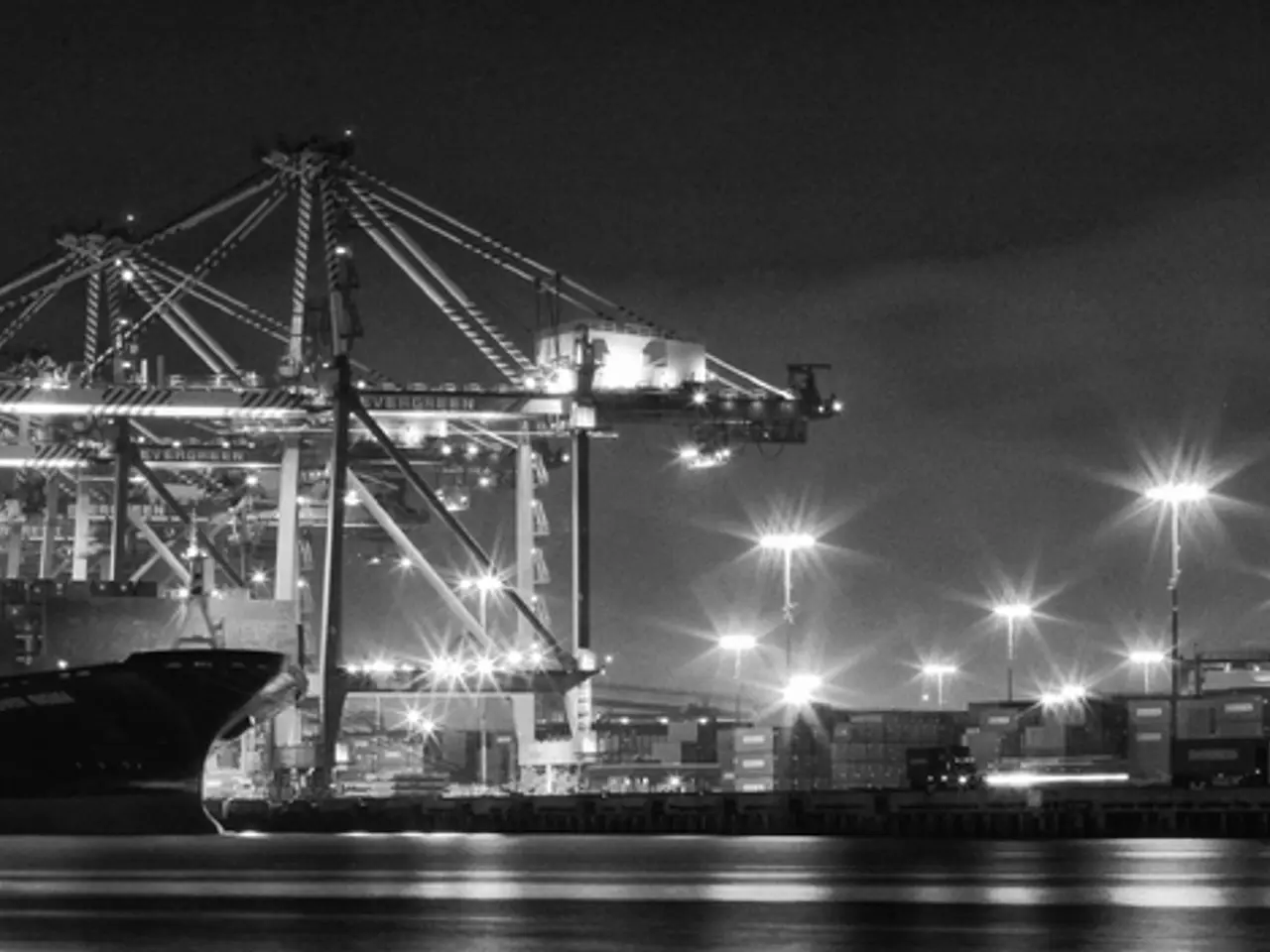Research on Harbor Energy Transformation - Research examining port adaptations for energy transformation
The federal government has announced plans to invest in the conversion of North German ports to support the country's energy transition. This move aims to facilitate the development of renewable energy industries, particularly offshore wind, and promote new green industries like aerospace and ICT within these port areas.
Key ports such as Hamburg and Bremen, which serve as important North Sea hubs, are earmarked for integration with industries related to the energy transition, including renewable energy sectors. The focus is on transforming these ports into hubs for renewable energy and new technology industries.
The federal government is taking a proactive approach, actively promoting infrastructure modernization in these ports as part of Germany’s broader energy transition strategy. This includes accelerating planning and approval processes to reduce delays for infrastructure projects linked to renewable energy, such as offshore wind farms and their associated port facilities.
The government seeks to address administrative challenges and accelerate offshore wind auctions, despite current difficulties attracting bids without subsidies. The ambitious offshore wind capacity targets (30 GW by 2030, 40 GW by 2035, and 70 GW by 2045) require a significant investment of billions over a period of ten years for the conversion of North German ports.
However, challenges remain. Recent offshore wind tenders have attracted no bids due to rising costs and risks, signaling a need for government adjustments in auction models and additional support to achieve targets.
Christoph Ploß, the coordinator of the federal government for the maritime economy and tourism, is advocating for a stronger commitment from the federal government in port policy due to maintenance backlog concerns. He is aiming for a change to the constitution so that the federal government can contribute more to the financing of the ports in the future.
Ploß believes that the current annual funding of 38 million euros from the federal government for all German seaports combined is insufficient. He has stated that he will actively work towards achieving this constitutional change.
The states are responsible for the ports, as stated in the Basic Law, but Ploß believes that this alone will not be enough to address the maintenance backlog. He is advocating for a total of up to 500 million euros for port financing, as mentioned earlier, to ensure the necessary investments are made in a timely manner.
The Federal Ministry of Economics is conducting a study to examine the conversion of North German ports for the energy transition. The study aims to demonstrate the need and perspective of individual ports as future energy hubs. The study will show the need and perspective of each port as a future energy hub, providing valuable insights into the potential of these ports in the energy transition.
The conversion of North German ports could involve becoming transshipment points for hydrogen, methanol, or e-fuels, according to Ploß. This transformation would position these ports as key players in the energy transition, supporting Germany's climate and energy goals in the North Sea region.
Sources:
[1] Federal Ministry of Economics and Climate Action. (2022). Conversion of North German ports for the energy transition. Retrieved from https://www.bmwi.de/Redaktion/DE/Publikationen/E/energiewende/energiewende-norddeutsche-hafenkonversion.html
[2] Ploß, C. (2022). North German ports as hubs for renewable energy and new technology industries. Retrieved from https://www.bmwi.de/Redaktion/DE/Redaktion/Pressemitteilungen/2022/02/hafenkonversion-fuer-die-energiewende.html
[3] German Offshore Wind Energy Association. (2022). Offshore wind capacity targets for Germany. Retrieved from https://www.offshore-wind.de/en/offshore-wind-energy/policy/germany/germany-offshore-wind-capacity-targets/
[4] Federal Ministry of Economics and Climate Action. (2022). Annual funding for German seaports. Retrieved from https://www.bmwi.de/Redaktion/DE/Publikationen/E/energiewende/energiewende-hafenfinanzierung.html
[5] Ploß, C. (2022). Challenges in offshore wind auctions and the need for government support. Retrieved from https://www.bmwi.de/Redaktion/DE/Redaktion/Pressemitteilungen/2022/04/hafenkonversion-fuer-die-energiewende-herausforderungen-in-den-windauktionen-und-die-notwendigkeit-der-staatsunterstuetzung.html
- The federal government, recognizing the potential of environmental-science and technology in driving the energy transition, is exploring the possibility of integrating vocational training programs in renewable energy sectors within the North German ports, such as Hamburg and Bremen, to foster a skilled workforce in green industries like offshore wind, ICT, and aerospace.
- In tandem with the development of renewable energy industries, the government aims to equip the North German ports with modernized infrastructure, facilitating the handling and transfer of new energy sources, such as hydrogen, methanol, or e-fuels, thereby positioning these ports as key players in the environmental-science sector, complementing the country's climate and energy goals in the North Sea region.




